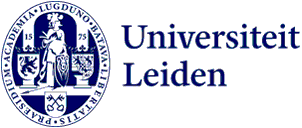
Nira Wickramasinghe receives grant to research forgotten Dutch slavery in the Indian Ocean World
Professor Nira Wickramasinghe will research forgotten lineages with an NWO Open Competition grant, in particular the afterlife of Dutch slavery in the Indian Ocean World.
‘This research project is about the paths through which generations of formally enslaved and their descendants gradually forgot their past of enslavement under Dutch and British imperial rule and became local subjects in Sri Lanka and South Africa. Few people are aware that Sri Lanka was a crucial hub of Dutch slave trade activities in the Indian Ocean world connecting present-day South Africa, Mauritius, and Indonesia’, Wickramasinghe explains. ‘We will re-evaluate early waves of European slavery on the island, question the role of slave ancestry in (re)fashioning communities in creolizing colonial suburbs and analyse the life courses of enslaved people and their descendants, displaced by imperial powers to Dutch and later British Cape Town from the seventeenth to the nineteenth centuries.’
International archival research
The researchers from the project group will rely on multi-site archival research in Sri Lanka, the United Kingdom, South Africa and the Netherlands. They will use the database of sold, bequeathed and manumitted enslaved people. Wickramasinge: ‘This will be the first project to apply the existing handwritten text recognition model to VOC sources in archives abroad to demonstrate advanced multi-sided record linkage.’ For this, they’ll partner with the GLOBALISE, a consortium of Huygens-ING/IISG Forgotten Lineages.
Fresh insights from rarely used sources
‘We also hope to draw from rarely used sources in Sinhalese to understand indigenous views on – and representation of – difference and the local idealistic environments in which social mobility functioned, for example Sinhalese war poems (hatanas) and other palm leaf manuscripts (olas), boundary books (kadaimpot), caste lists (Janawansa) and folk stories,’ Wickramasinghe says.
By doing so, the researchers hope to further complicate the variety of forms taken by Dutch colonialism and enslavement. ‘It will sharpen our understanding of the after-effects of enslavement through a deep and rooted exploration of new source material. Fresh insights into the complexity of the lived experience of slavery in Indian Ocean colonies is essential for “implicated subjects” in the Netherlands to come to terms with little-known features of their colonial past. Moreover, this project will feed into societal debates on national belonging in Sri Lanka and South Africa, where ideas of authenticity based on racial purity persist.’
Breaking down racialized identities
According to Wickramasinge, a positive dynamic produced by this project has the potential to break down the logics of racialized identities both in the former colonies and in the Netherlands: ‘By highlighting the agility of multiracialized individuals to constantly adapt to new circumstances and the relational aspect of communities, this project seeks to write histories of social mobility of enslaved people and their descendants into national, oceanic, and imperial histories. It also seeks to further challenge teleological narratives on community formation in Dutch Asia that focus on ascribed colonial administrative categories rather than on lived experiences of identification.’
‘I am really looking forward to working on this project with my team: PhD candidates Sanayi Marcelline en Pouwel van Schooten en postdoc Dries Lyna. It will be very exciting for us to explore interconnected ‘ordinary lives’ that are linked together geographically and over multiple generations, and follow families and connections over time.’
